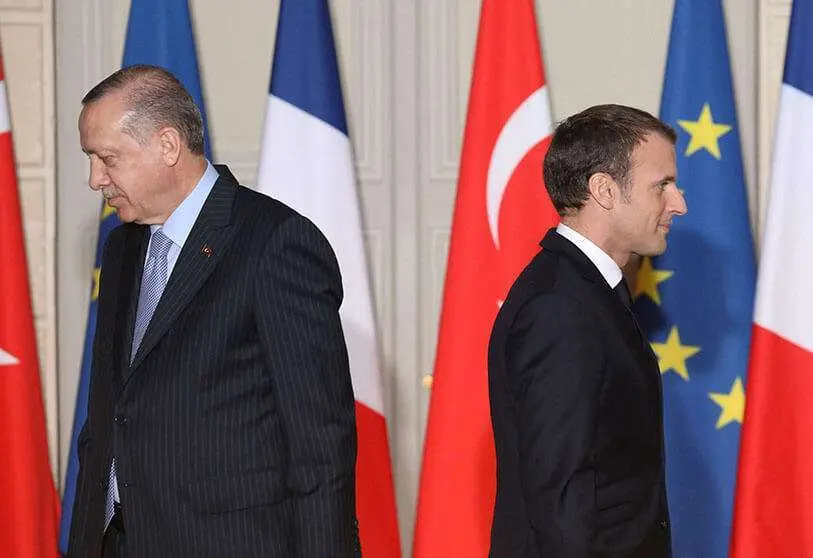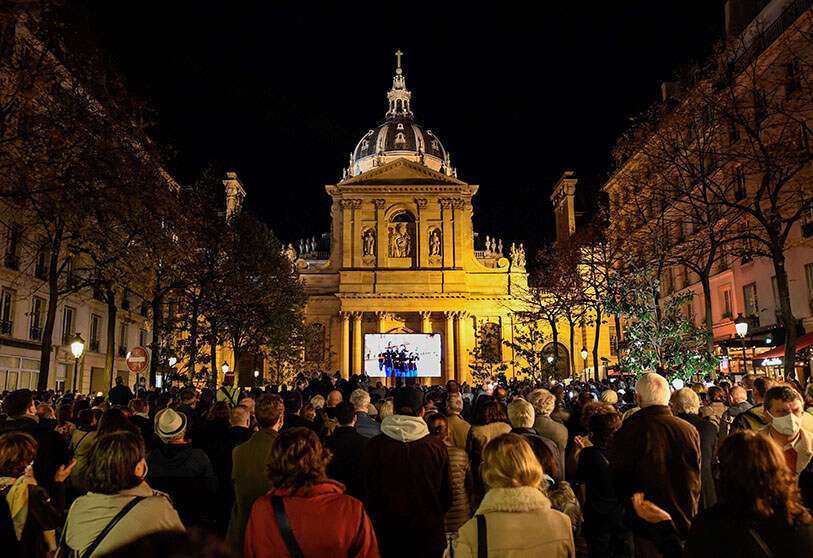Macron's fight against radical Islam opens a schism with the Arab countries

The firm decision of the French president, Emmanuel Macron, to defend one of the pillars of liberal democracies: freedom of expression, with his declarations "not to renounce publication of the cartoons" of Mohammed, has generated tension between France and the Arab countries.
Macron made these statements on Wednesday during the tribute to professor Samuel Paty, who was beheaded by a young Chechen and a follower of radical Islam.
Turkey, Iran, Jordan and Kuwait denounced the publication of the cartoons of the prophet in the satirical magazine Charlie Hebdo -which suffered a terrorist attack five years ago- and in recent days there have been many calls on social networks to boycott French products.
In Qatar, the distribution chains Al-Meera and Suq al-Baladi announced that they would "withdraw" French products from their shops. The Islamic Cooperation Organisation also criticised "the statements made by some French leaders (...) which could damage Franco-Muslim relations".
In Saudi Arabia, citizens supported a campaign through social networks to stop shopping at the French supermarket chain Carrefour; and in Kuwait, the NGO Union of Consumer Cooperative Societies withdrew several beauty products made by French companies from more than 70 shops, according to the AFP news agency.

Moreover, some 200 people demonstrated on Saturday night in front of the residence of the French ambassador in Israel to denounce Macron's statements, while in the Gaza Strip there were also protests in which the image of the French president was burned.
"These calls for boycott are unfounded and should cease immediately, as should all attacks against our country, which are being promoted by a radical minority," the French Foreign Affairs Ministry said in a statement on Sunday.
The hardest attacks were made by the Turkish President, Recep Tayyip Erdogan, who said that Macron "needs mental therapy" because of his "attitude towards Muslims".
The Elysée responded that "indignation and insult are not a method" and, in response to the increasing tensions, he called for consultations with the French ambassador in Turkey, a gesture that was supported by the European Union.

The EU's High Representative for Foreign Affairs, Josep Borrell, expressed his support for Paris via his Twitter account and criticised Erdogan's "unacceptable" words, calling on Ankara to stop "this dangerous spiral of confrontation".
The head of European diplomacy also recalled that if at the European Summit at the beginning of October it was proposed to relaunch relations with Turkey, "a political will of the authorities" is necessary, because otherwise "Turkey will be even more isolated".
The Collectif contre l'Islamophobie en France (CCIF) denounced to the United Nations Human Rights Council (HRC) the bill presented by Macron to combat "extremist" ideas, as well as the French government's attempts to close down Muslim associations and NGOs.
The CCIF also criticised Interior Minister Gérald Darmanin for his statements threatening to close down the group.
The violent murder of the French professor reopened the debate in France on "Islamist separatism". "We must attack Islamic separatism. Secularism is at the heart of France," Macron said in a speech on 2 October.

A few days ago, the French president announced a proposal for a law that would prevent the radicalisation of the most vulnerable communities. "Radical Islamism, by creating laws above those that currently exist in the country, is a danger for France because sometimes it translates into a counter-society," Macron said.
The controversial bill, which will be presented in December, includes among other rules: stricter monitoring of sports organisations and other associations so that they do not become a focus of radicalisation; an end to the exchange programme for foreign imams arriving in France; the control of methods of financing mosques and certain restrictions on home education.








